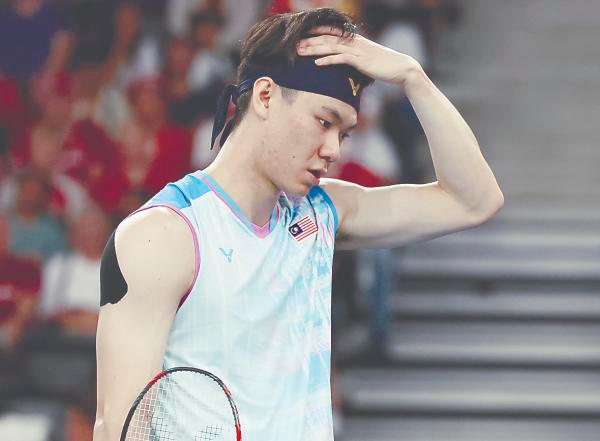OUR recent Olympic bronze medalist and national shuttler, Lee Zii Jia, has received a lot of negative criticism and bashing in the past.
In his latest interview after winning the bronze medal, he shared: “A lot has happened in the past three years. There were times when I wanted to give up, but I did not cry, not even once. I came this far. Every morning when I wake up, I see news about myself. I kept wondering what I did wrong. Whatever the media wrote about me, I kept my silence because I knew I would prove it to them. I was not even sure if I could qualify for the Olympics, and my rankings dropped.”
Such bashing culture has become a norm in Malaysia. It is sad to see harsh criticisms in the media based on speculation, unjust or incomplete statements and misleading headlines that lack full context about what Zii Jia and other athletes are experiencing, regardless of whether they win a medal or not.
These practices have influenced the perception of some netizens and has led to another level of bashing and criticisms.
This culture of bashing has a negative impact on individuals who endure such treatment.
While constructive criticism and professional feedback are important for improvement, athletes often receive non-constructive criticism or personal attacks that are unwarranted.
Such criticisms may lead to insecurity, imposter syndrome, anxiety, self-criticism and depression.
Often, athletes already blame themselves for their mistakes, with some even publicly apologising for not winning medals.
Individuals who receive such treatment often end up overthinking, with hurtful and fallacious statements replaying in their minds.
It can be traumatising to even engage with social media or read news relating to them. They may feel they are not qualified, less capable than before or like impostors. Such pressure can make it even harder for them to maintain the mental resilience needed to win a game.
One may wonder why people engage in bashing others. Several reasons can be behind this behaviour.
For some, it may stem from unresolved personal issues or challenges they avoid confronting, leading them to project their frustrations onto others and target those who seem like easy victims.
Some individuals may feel a sense of importance or satisfaction from criticising others. For those with a sense of inferiority, belittling others can create a temporary feeling of security.
Additionally, people who experienced frequent insults or criticism during childhood may continue the cycle by criticising others as it feels familiar to them.
Some may pin their hopes and expectations for an Olympic gold medal onto athletes, blaming them when they cannot achieve it. The anonymity on the internet gives them greater power to express their criticisms.
It is important for athletes to know that these bashings sometimes have nothing to do with them. It will be helpful for Malaysian athletes to seek support from mental health practitioners, such as counsellors or clinical psychologists, to help process the criticism they receive and build greater psychological resilience.
If individual therapy is intimidating, perhaps having a group support session with all involved athletes, will be a good move to allow them to share their views and voice out their emotions.
Ex-athletes can also be invited to share tips on how they managed similar situations to build their mental strength and resilience.
Despite the challenges our athletes face, these experiences can serve as a catalyst for building greater resilience and determination.
Whether they win medals or not, they remain heroes in our eyes, embodying the spirit of perseverance and sportsmanship. By overcoming these obstacles, our athletes can strengthen their grit and also inspire others to stay true to their goals.
In the end, their journey is not just about the medals they attain but the courage and resilience they show in the face of adversity and setbacks.
Fortunately, we have also witnessed a compassionate culture in Malaysia, with warm and understanding statements shared by caring Malaysians. They fully understand how disappointed our athletes are, especially when they are so close to winning.
In Zii Jia’s case, seeing him affected and sad is difficult and disheartening. This incident serves as a good reminder to be mindful of our words, as indicated by Zii Jia’s winning pose. There is no need for hurtful and unconstructive words. Let us be kind and compassionate to our athletes.
The writer is the programme director for Master of Clinical Psychology at the Department of Psychology, School of Liberal Arts and Sciences, Faculty of Social Sciences and Leisure Management at Taylor’s University. Dr Lim is also a registered clinical psychologist and licensed counsellor. Comments: letters@thesundaily.com









